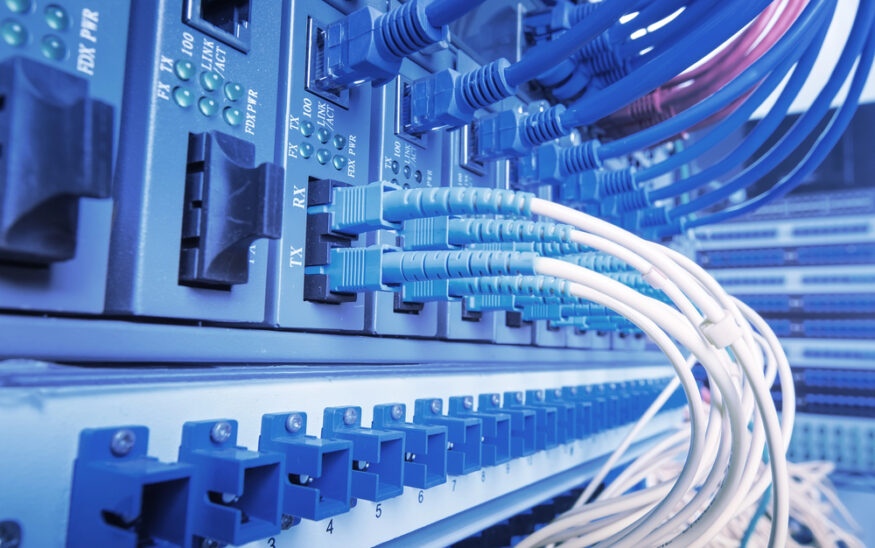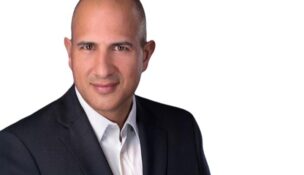Feds approve $545M for Virginia broadband expansion
Plan came under fire by Elon Musk for limiting Starlink's award
Josh Janney //November 19, 2025//

Photo: Depositphotos.com

Photo: Depositphotos.com
Feds approve $545M for Virginia broadband expansion
Plan came under fire by Elon Musk for limiting Starlink's award
Josh Janney //November 19, 2025//
SUMMARY:
- Federal government OKs Virginia’s broadband expansion funding request of $545 million
- Elon Musk blasted state’s proposal, saying it was unfair to his satellite-based internet business
- State has about 133,000 unserved addresses to connect
- About $430 million in private investment will match federal money
The federal government has approved Virginia’s request for $545 million in broadband funding, money that will be used to connect 133,000 statewide addresses without reliable internet access.
Part of an initiative launched under former President Joe Biden, the U.S. Department of Commerce‘s National Telecommunications and Information Agency (NTIA) announced Tuesday that it has given final approval to the state’s Broadband, Equity, Access and Deployment (BEAD) proposal, along with plans from 17 other states.
According to Gov. Glenn Youngkin‘s office, NTIA’s approval authorizes Virginia to distribute more than $545 million in BEAD funding to 23 internet service providers to build broadband infrastructure for the remaining 133,000 unserved homes, businesses and other facilities. The ISPs will leverage nearly $430 million in private capital to complete the buildout.
“With the BEAD program, we are not just building infrastructure, we are building opportunity in Virginia as we close the digital divide,” said Tamarah Holmes, director of the state’s Office of Broadband in the Virginia Department of Housing and Community Development, which will administer BEAD. “This milestone brings us closer to a commonwealth where reliable broadband is no longer a privilege, but a standard for all.”
Under President Donald Trump’s administration, Virginia’s broadband funding has been far from certain.
Earlier this year, the White House led a push toward satellite-based internet and away from broadband fiber, which raised concerns among some state Democratic officials who argued that fiber is more reliable than satellite, which requires clear skies for connection and satellite replacements every few years.
Satellite advocates, like billionaire satellite orbit investors Elon Musk and Jeff Bezos, cite lower costs to their technology compared to laying broadband fibers to each structure, especially in remote areas. In August, Musk panned Virginia’s broadband proposal as “a massive waste of federal taxpayer money” and said the state had unfairly rejected a proposal from Starlink, his aerospace company SpaceX’s satellite-based internet service.
U.S. Sen. Mark Warner, a Democrat who made his multimillion-dollar fortune by investing in wireless service operator Nextel, criticized Trump’s focus on satellites, saying it mainly would benefit Musk financially.
Exacerbating the uncertainty, the Trump administration rescinded several digital equity grants, and BEAD guidelines were rewritten, forcing localities and providers to redo their proposals.
Holmes said this summer that the DHCD has always been tech-neutral when selecting projects to fund through the Virginia Telecommunications Initiative (VATI), the statewide internet expansion program formed in 2017.
Over the past eight years, the state and federal governments provided $935 million and received $1.2 billion in matching funds from local governments and ISPs to extend internet access to more than 388,000 addresses in 80 Virginia cities and counties.
“Broadband access is essential for effective participation in the modern economy and society,” DHCD Director Maggie Beal said in a statement Tuesday. “Virginia’s BEAD final proposal is the last piece of the puzzle for bringing high-speed, reliable broadband access to every Virginian.”
Youngkin also praised the decision Tuesday, noting that when he took office in 2022, more than 430,000 Virginians lacked access to broadband infrastructure. Since then, Virginia has made significant progress in connecting homes.
“Since the very beginning of our administration, connecting every Virginia home and business to reliable, high-speed internet has been a top priority,” Youngkin said in a statement. “This approval clears the way for us to keep this promise, with a funded broadband project for every unserved home and business in the commonwealth. Virginia continues to be a national leader in broadband expansion and will be one of the first states in the nation to reach universal broadband access.”
Warner also lauded the federal decision, saying in a statement, “Expanding broadband access has been a top priority of mine since my time as governor, and I’m proud that Virginia continues to remain a national leader in this effort. When I wrote the broadband sections of the Bipartisan Infrastructure Law, the goal was simple: Give states the resources to finally finish the job.”
C

















